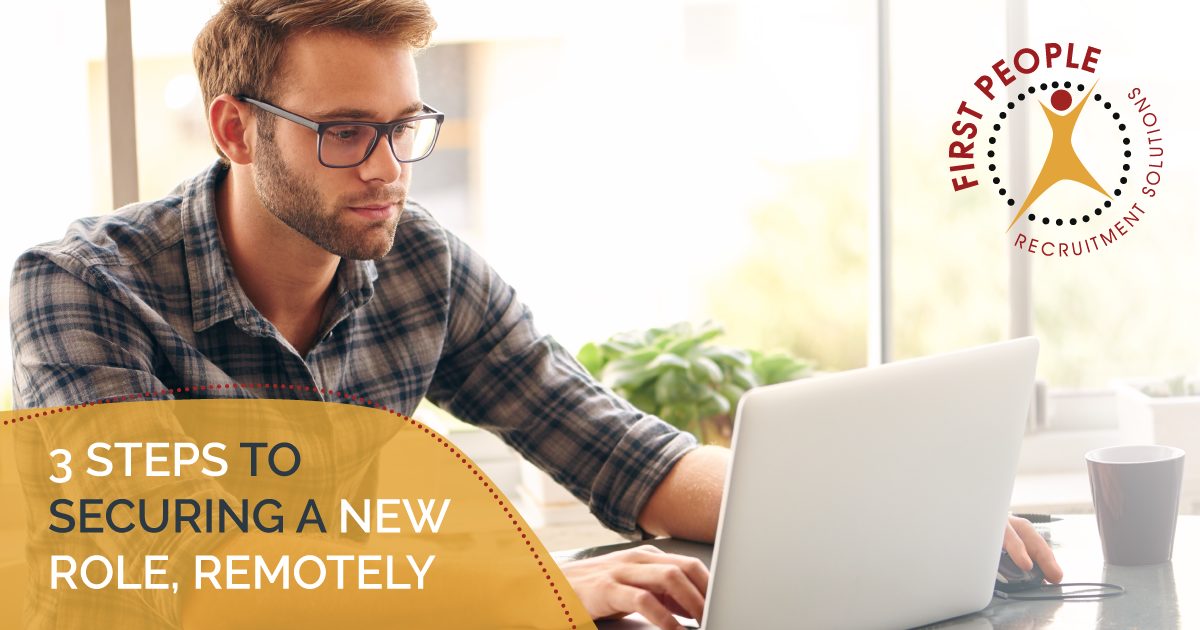
It’s clear that the job market has slowed in recent weeks and months. Understandably, many new (and often involuntary) job seekers are concerned that restrictions on movement may make finding a new role impossible. But that isn’t the case. Opportunities are still out there; what’s required is a shift in mindset and a readiness to embrace new tools and techniques in identifying, applying for and securing a new role entirely remote. Here’s how to navigate the three key stages of securing your new role remotely.
The Search
Job boards and professional networking sites are a good place to start, you’ll find readymade and regularly updated job listings from a wide variety of employers. But your job search shouldn’t be as one dimensional as browsing roles and hitting the apply button. This is the point at which you can access the true value of networking. Applying for roles that fit your criteria is obviously a relevant starting point, but a starting point is all that is.
From there, you should join relevant social media groups ( LinkedIn has countless for every conceivable industry) make connections with industry professionals and underpin these interactions with an up-to-date and compelling online profile. Whilst networking it would be extremely useful for you to speak to a specialist recruiter operating in your area of interest. Recruiters can offer advice on how to optimise the activities you are carrying out as well as provide direct access to latest roles direct from employers which may not have yet (and may never) hit the online sphere.
Once you have successfully promoted your profile in front of a potential employer who sees the value you have to offer, a likely next step will be the phone interview. Phone interviews have been standard first stage practice for many years, but their significance, since you will not have the chance to follow up in-person, is now heightened.
Three easy to remember (and forget) considerations for any phone interview:
-
Preparation, preparation, preparation.
Phone interviews are usually brief, but there’s value in over-preparing and having your notes, your CV and a list of your own questions handy to ensure you hit all the points you want to. -
Remove distractions.
This starts with ensuring that you’re in a quiet and disruption-free environment and extends to your device itself. Switch off call-waiting and turn-off notifications to avoid losing your train of thought at crucial times. -
Call Considerations.
Listening to questions and responses carefully, there will be no non-verbal cue to help you infer what your response should be. A common symptom of nervousness in an interview is speaking too fast or rambling, and this is even more prevalent in a phone interview. Consciously check your answers as your delivering them and have the presence of mind to stop when you feel you have said what you need to.
The Video Call
In place of the usual face-to-face, video calls are taking centre stage as THE most important part of the recruitment process. As with the phone call, there are some steps to take to ensure you can perform effectively in this environment:
-
Test your tech.
Don’t leave it until the last minute to ensure everything, particularly your webcam and microphone, is in working order. Call a friend, relative or your recruiter for a test run ahead of time. -
The right location.
Make sure the location you choose is tidy and free from noise and disruptions. -
Dress the part.
We always advise our candidates to dress the way they would for a face-to-face interview. -
Make virtual eye contact.
You’ll naturally be inclined to look into your interviewers’ eyes when addressing them. Especially whilst they are talking, look directly into the webcam, not the screen.



